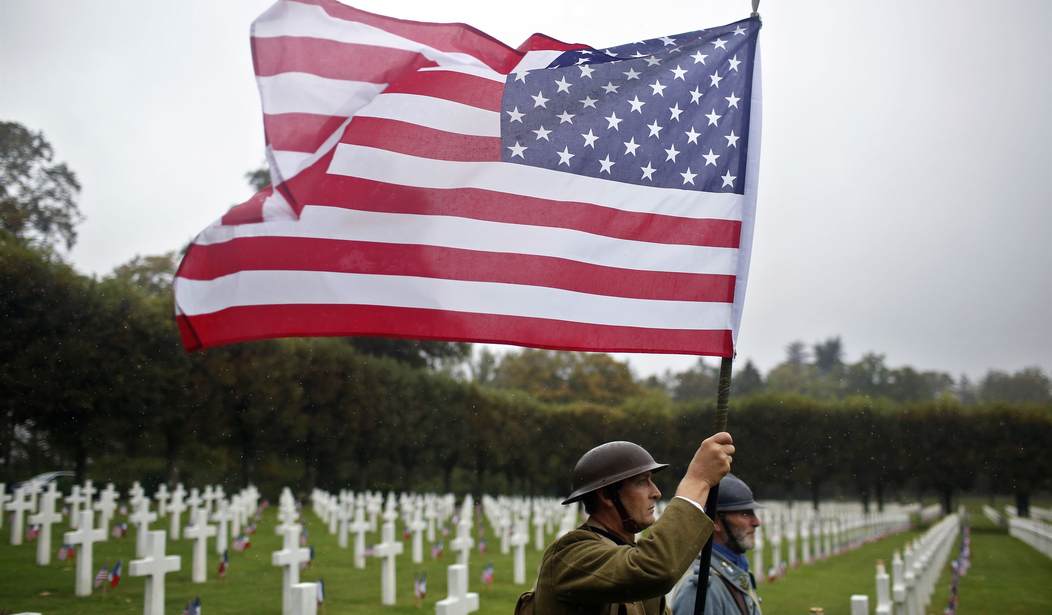Memorial Day emerged from America's most deadly and destructive war: the Civil War.
Agreed, social, political and moral divisions are wracking and weakening contemporary America. But no external or internal challenge quite compares to the Civil War -- at least not yet.
Measured by soldiers and civilians killed in combat and by war's derivative killers -- starvation, disease and exposure -- the Civil War has no rival.
Physical, economic and social destruction are more relative terms and comparing them in different historical eras is tricky.
The Union's best generals, Grant and Sherman, targeted Confederate economic productivity. They knew the South's ability to supply its armies prolonged the war. Sherman's vow to "make Georgia howl" expressed the strategy succinctly.
Blue and Gray armies burned farms and factories. The Confederate and border states (Kentucky, Missouri, even Maryland) suffered terrible devastation from both armies. This assertion is debatable, but I think it has merit. It took the Deep South 90 years (and the unifying effects of two world wars with international enemies) to overcome its economic backwardness, in comparison to the Yankee Northeast and Midwest.
Yet the social-political Civil War lingered... and lingered.
The 1950s and 1960s desegregation movement was a Civil War battle, hopefully the last battle. Circa 1957 my father said that in just about those very words. (We were in an old Plymouth station wagon.)
My mother, a movement civil rights activist advocating individual rights and a society disregarding creed and color, outright riled segments of 1958 Midland, Texas, society. She went public with her views on author James Baldwin's instructive rage and why Dr. Martin Luther King's nonviolent crusade was politically and spiritually healing and just totally American.
Recommended
Mom said she fought a "just war."
OK. 1959, 1960. Hundredth anniversary of the Civil War approaching; no kid could miss it. I remember thinking that if Mom fought a just war, then the Union soldiers who fought and died certainly did. Roughly 360,000 Union soldiers died. Fact: Their blood ended slavery.
No matter what those young men of 1863 believed, their sacrifice should silence the race-hustling anti-American bigots of 2023.
Unfortunately, there's money and media fame in hating America. Examples of contemptible self-serving disregard: 1619 Project (this outfit banks on a big lie, told often: America was founded on slavery); Black Lives Matter (a grift operation; its leaders buy mansions off their take); and despicable media jaws like Joy Behar who presume to tell Justice Clarence Thomas (who grew up in the Jim Crow South) he doesn't know what it's like to be a black man in America.
Since 2009 the civil rights battle has certainly changed. The Neo-Civil War is a political war in psycho-sexual drag. Basic tactic: If you disagree with me, you're violent!
The armed services have recruiting problems and many of these problems have roots in these very curious internal divisions. The worst are highly neurotic and narcissistic individual demands for "rights" that challenge human chromosomes and common sense.
On the macro level these demands undermine social cohesion: Parents are investigated for terrorism because they wish to protect their kids from mental and physical harm.
In the micro level of a military unit, these demands -- which are always in flux, they change; very "trans," so to speak -- this self-righteous selfishness destroys the trust and discipline it takes to win in combat.
This is a Memorial Day column. Decoration Day was a Union observance. Union survivors set aside a day in May for "decorating" the graves of dead soldiers with flowers. The website usmemorialday.org notes that Southern states "refused to acknowledge the day, honoring their dead on separate days until after WWI." Yes, a unifying effect. After WWI the day changed from honoring just those who died fighting in the Civil War to honoring Americans who died fighting in any war.
Memorial Day became a national day, a healing day of remembrance to say "thanks," no matter an individual's personal history.
Memorial Day became a moment to reflect and to remember, to reflect and to respect the special gift of those who did their duty.
Military service is the most difficult duty in a democracy. Military sacrifice protects rights -- the real rights to life and liberty.

























Join the conversation as a VIP Member